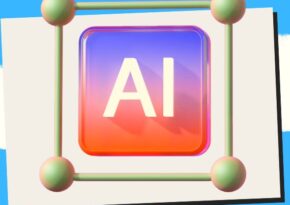
Smart Governance, Smarter Citizens: The Role of Blockchain! 

Explore the synergy of smart governance and empowered citizens, all made possible by the transformative role of blockchain technology.
The Digital Revolution of Governance: How Blockchain is Transforming E-Governance 


In the digital age, governments worldwide are striving to deliver more efficient, transparent, and citizen-centric services. The solution to this modern challenge? Blockchain technology. With its core principles of transparency, security, and decentralization, blockchain is revolutionizing the way governments operate and interact with their citizens. In this article, we’ll embark on a journey to explore the exciting realm of blockchain’s contribution to e-governance, its benefits, real-world use cases, challenges, and the transformative potential it holds for the future of governance.

Before we delve into the solutions that blockchain offers, let’s understand the challenges faced by traditional governance systems:
**1. *Data Security*: Governments handle vast amounts of sensitive citizen data, making them susceptible to data breaches and cyberattacks.
**2. *Transparency*: Lack of transparency can lead to corruption, mistrust, and inefficiencies within government processes.
**3. *Identity Verification*: Authenticating the identities of citizens securely is a complex and often error-prone task.
**4. *Fraud and Corruption*: Fraudulent activities and corruption can plague government programs and services.
**5. *Inefficiencies*: Bureaucracy and red tape can lead to slow and inefficient service delivery.

Blockchain technology serves as a foundation for e-governance by addressing these challenges:
**1. *Immutable Records*: Blockchain records are tamper-proof, ensuring the integrity of government data and transactions.
**2. *Transparency*: Blockchain transactions are transparent and can be accessed by authorized parties, fostering trust and accountability.
**3. *Decentralization*: The decentralized nature of blockchain reduces the control of centralized authorities and intermediaries.
**4. *Identity Verification*: Blockchain can be used for secure and privacy-preserving citizen identity verification.
**5. *Smart Contracts*: Smart contracts automate government processes, reducing bureaucracy and enhancing efficiency.

Blockchain’s impact on e-governance extends to various domains:
**1. *Secure Digital Identity*: Governments can issue blockchain-based digital IDs, providing secure and verifiable identity verification for citizens.
**2. *Voting Systems*: Transparent and tamper-proof blockchain-based voting systems are enhancing election integrity.
**3. *Land and Property Records*: Blockchain ensures transparent land and property ownership records, reducing disputes and fraud.
**4. *Supply Chain Tracking*: Governments use blockchain to track the supply chain of goods, ensuring authenticity and safety.
**5. *Public Procurement*: Blockchain optimizes public procurement processes, reducing corruption and inefficiencies.

The integration of blockchain in e-governance offers a multitude of benefits:
**1. *Data Security*: Blockchain enhances data security, protecting sensitive citizen information from cyber threats.
**2. *Transparency*: Transparent government processes build trust and accountability between citizens and authorities.
**3. *Efficiency*: Smart contracts streamline government operations, reducing bureaucracy and enhancing service delivery.
**4. *Reduced Corruption*: Blockchain reduces the risk of corruption by creating transparent and traceable transactions.
**5. *Digital Inclusion*: Blockchain-based digital IDs and services ensure digital inclusion for all citizens.

While blockchain offers promising solutions, it also presents challenges and considerations:
**1. *Adoption and Education*: Widespread adoption of blockchain in e-governance requires education and awareness among governments and citizens.
**2. *Regulatory Landscape*: The regulatory environment for blockchain in governance is evolving and may impact its adoption.
**3. *Privacy Concerns*: Balancing transparency with privacy is a challenge, as some government processes require confidentiality.
**4. *Interoperability*: Ensuring compatibility between different blockchain networks and government systems is crucial.
**5. *Scalability*: Blockchain networks must be able to handle a high volume of government transactions and data.

The future of e-governance with blockchain is promising:
**1. *Digital IDs for All*: Blockchain-based digital IDs will ensure secure and inclusive citizen identification.
**2. *Transparent Elections*: Blockchain will play a crucial role in ensuring transparent and tamper-proof elections.
**3. *Efficient Government Services*: Smart contracts will automate government processes, making services more efficient and accessible.
**4. *Reduced Corruption*: Blockchain will help reduce corruption and enhance trust in government.
**5. *Global Governance*: Blockchain will enable cross-border cooperation and data sharing among governments.

In an era where governments are tasked with providing efficient and secure services to their citizens, blockchain technology emerges as a beacon of transparency, security, and efficiency. It paves the way for a future where government processes are streamlined, trust is rebuilt, and citizens have access to secure digital identities and services.
As blockchain continues to reshape the landscape of e-governance, the vision of a more transparent, efficient, and inclusive government becomes a reality. With blockchain as the cornerstone, the future of governance holds the promise of a better-connected and empowered global citizenry.
Related Queries
Blockchain’s Role in E-Governance
Smart Governance Powered by Blockchain
Global Impact of Blockchain in E-Governance
Transparent Governance with Blockchain Technology
Civic Inclusivity with Blockchain E-Governance
Blockchain’s Digital Revolution in Government
Empowering E-Governance with Blockchain
Digital Democracy and Blockchain Governance
Data-Driven Governance with Blockchain
Efficient Governance Through Blockchain
Save/Share this story with QR CODE
Disclaimer
This article is for informational purposes only and does not constitute endorsement of any specific technologies or methodologies and financial advice or endorsement of any specific products or services.
 Need to get in touch?
Need to get in touch?

We appreciate your reading. 
1.) 

Your DONATION will be used to fund and maintain NEXTGENDAY.com
Subscribers in the Philippines can make donations to mobile number 0917 906 3081, thru GCash.
3.) 
4.) 
AFFILIATE PARTNERS

World Class Nutritional Supplements - Buy Highest Quality Products, Purest Most Healthy Ingredients, Direct to your Door! Up to 90% OFF.
Join LiveGood Today - A company created to satisfy the world's most demanding leaders and entrepreneurs, with the best compensation plan today.

 Business, Finance & Technology
Business, Finance & Technology












